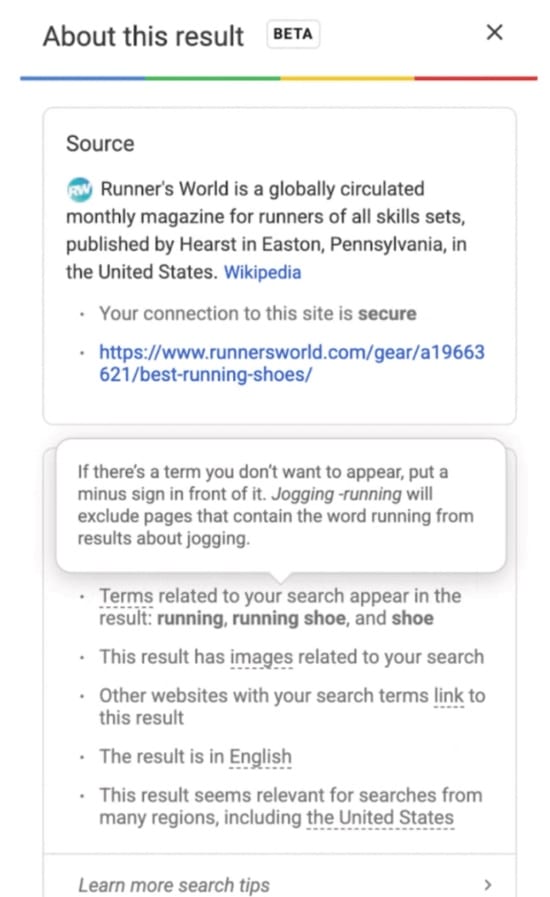Google updates search to tell you why you're seeing particular results

Google has announced a significant upgrade to it search engine that means you will now be better informed about the reasons particular results are displayed to you.
Much of the time it is apparent why a certain page has been included in results, but this is not always the case. It is with this in mind that Google is updating the About This Result panel in search results to be more informative.
See also:
- Google is rolling out its unified backup service, Backup by Google One
- Twitter is experimenting with a downvote option on tweets... but don't call it a Dislike button
- Windows 11's moving Start button messes with muscle memory and more
The About This Result feature was introduced earlier this year and -- assuming it is available to you -- can be accessed via the three dots that appear next to the majority of search results. In addition to giving you an explanation about the results you see, the panel is also now used to give you search tips to make it easier to find the sort of results you’re looking for.
The search giant explains more about what is happening with the change:
The way Google determines what is relevant and reliable information for a given query is based on a lot of different factors. While it can seem complex, some of these fundamental concepts are actually quite simple, and can be useful for people to understand when they start searching.
Starting today, About This Result will show searchers information about some of these most important factors used by Google Search to connect results to their queries. Because just as these factors help Google decide if a result may be relevant, they may also help people decide what result is useful for them.

Just what you see in the panel is entirely dependent on the search you have performed, but Google gives some examples of the sort of information you can expect to find:
- Matching keywords: A simple, but important, factor Google uses to determine if information is relevant is when a webpage contains the same keywords as your search.
- Related terms: Google also looks for terms that our systems determined are related to the words in your query. If you search "how to cook fish in the oven," we'll also look for pages that have related terms like "bake" and "recipe."
- Looking at links: When other pages link to a page using similar words as your query, that page might be relevant to your search. It can also be a helpful indicator of whether online content creators tend to regard the page as useful for that topic.
- Local relevance: Our systems also look at factors like the language you’re using to search as well as your country and location, to deliver content relevant for your area. For example, if you search "what day is trash pickup?," it’s helpful to get results that are applicable to your city or state.
The updated feature has just started to roll out and is being made available to users in the US searching in English. Google will expand availability "in the coming months".
Image credit: Thaspol Sangsee / Shutterstock
